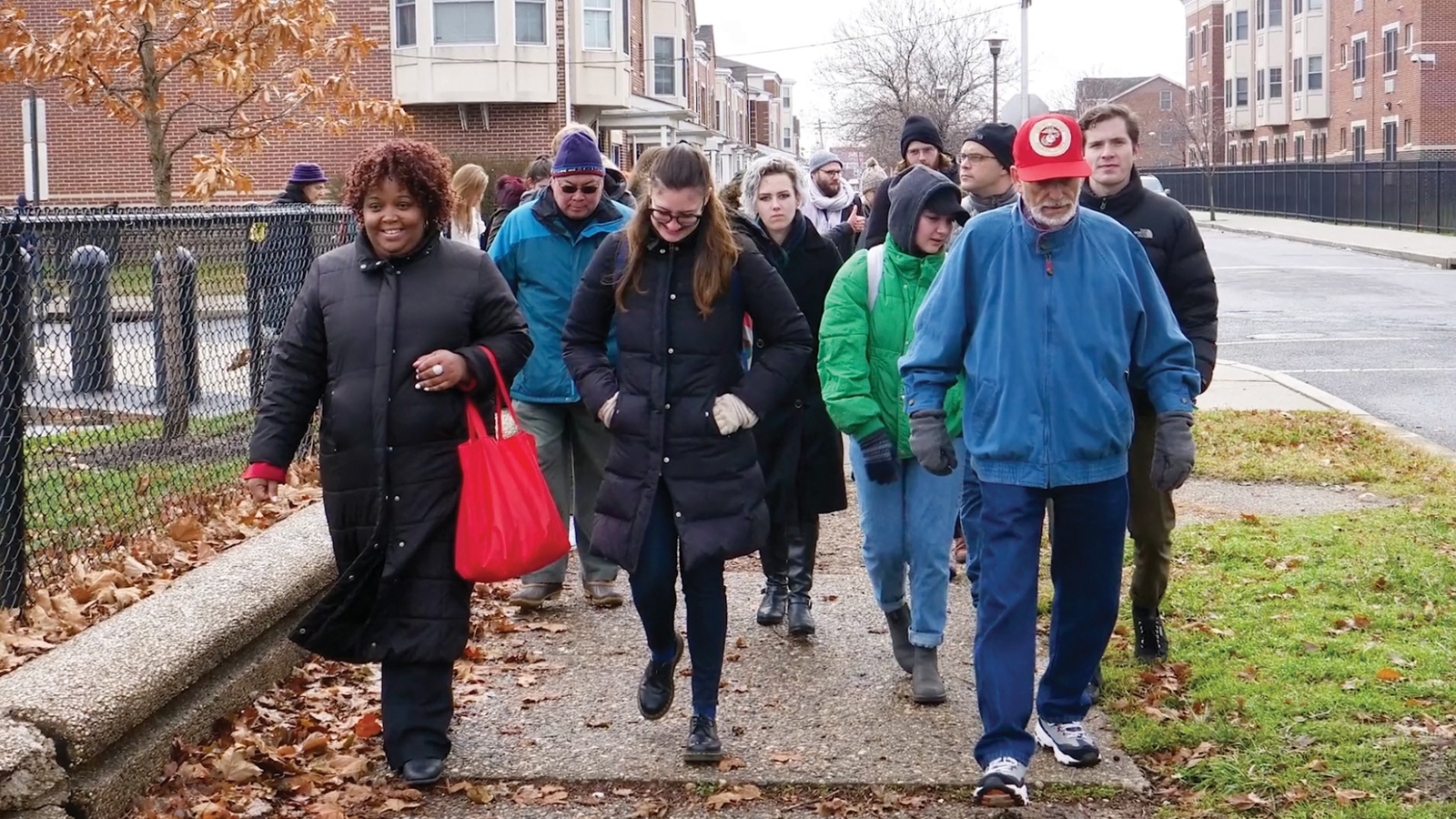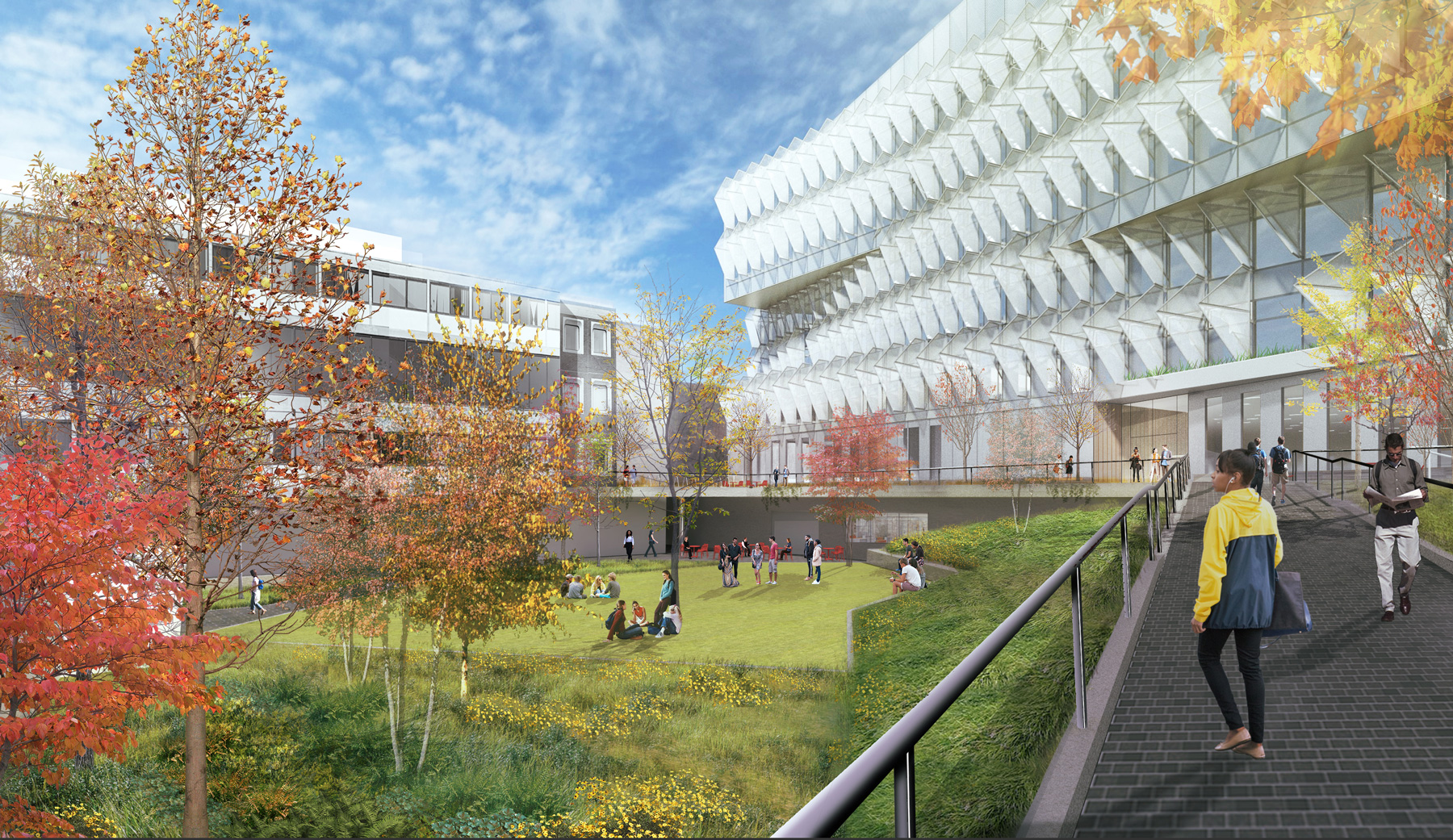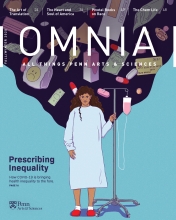
Since the launch of the Power of Penn Arts & Sciences Campaign, we have witnessed tremendous energy around our key priorities. This includes advancing the excellence of our faculty, as well as providing resources and programs to ensure that our students have access to a liberal arts education that will help them meet the challenges of the 21st century.
We have also been pursuing a series of ambitious goals to transcend the frontiers of knowledge in areas that are of vital importance to our world, from Harnessing the Power of the Brain, to Exploring the Human Experience, and Driving Global Change. You can learn more about these areas on our campaign website, at power.sas.upenn.edu.

Steven J. Fluharty, Dean and Thomas S. Gates, Jr. Professor of Psychology, Pharmacology, and Neuroscience
Lisa J. Godfrey
I want to shine a spotlight on another priority that has only increased in importance since our campaign began: Creating a Sustainable Planet. From my perspective as Dean of the School, in addition to my point of view as a scientist, concerned citizen, parent, grandparent, and Penn Arts & Sciences graduate, I believe that Creating a Sustainable Planet is key to our collective future. And I know that the talent and determination of Penn Arts & Sciences students and faculty will lead to real progress.
In these pages, you’ll get a look at some important work across the disciplines that is focused on energy, sustainability, and the environment. I celebrate the work that is already being done and I look with anticipation toward the future we can build together.
Creating a Sustainable Planet
The urgent need to revolutionize our thinking about energy can no longer be disputed. Scientific advances, combined with deep understanding of human interactions with the natural world, form the path to sustainable solutions to society’s energy needs.
The Vagelos Laboratory for Energy Science and Technology
Our plans call for a building that will provide state-of-the-art research space where physical scientists and engineers can work together to develop sustainable energy technologies. In 2019, P. Roy Vagelos, C’50, PAR’90, HON’99, and Diana T. Vagelos, PAR’90, made a $50 million gift to support the construction of the building, and they recently made an additional gift to add another floor for laboratory space, ensuring that our energy research has room to grow.
The new building, a shared facility of Penn Arts & Sciences and Penn Engineering, will be an important space for faculty and students alike. It will provide state-of-the-art research space and homes for two other collaborations: the Vagelos Institute for Energy Science and Technology, a research institute, and the Vagelos Integrated Program in Energy Research (VIPER), an undergraduate dual-degree program.
Penn Program in Environmental Humanities
Collaboration and connection have been part of the Penn Program in Environmental Humanities (PPEH) from the very start. Founded by students and faculty who recognized the power of combining humanistic and scientific knowledge and perspectives, PPEH pursues projects that engage deeply with the lived experiences and concerns of communities in Philadelphia and around the world.
When an oil refinery exploded in South Philadelphia, PPEH students worked with community leaders to collect oral histories from residents who could speak to living in the shadow of the refinery and their hopes for the future. Bethany Wiggin, PPEH Director and Associate Professor of Germanic Languages and Literatures, was even called before the Philadelphia City Council to give expert testimony on the refinery’s history and environmental impact.
When the severity of the COVID-19 pandemic was becoming apparent, PPEH launched COVID x Climate, a collaborative public project concerned with the intersections of the coronavirus and climate change—intersections we are seeing in real time as already-strained communities respond to hurricanes and wildfires.
The Water Center
Water is a human right. Penn’s Water Center begins there, and works to foster meaningful, real-world solutions to global water challenges.
Because water crises are inextricably tied to issues of climate change and social inequality, there is no single solution. Instead, solutions for water systems must prioritize sustainable development and community involvement while engaging scientific and industry experts. The Water Center is unique in its combined focus on industry expertise, scholarly insight, and education. Through fellowships for both water professionals and faculty and student researchers, the center works toward actionable, evidence-based solutions, while a community engagement program promotes STEM (science, technology, engineering, and math) education and creates dialogue between Penn and its neighbors in West Philadelphia.
To learn more about any of these initiatives or to support the Power of Penn Arts & Sciences Campaign, email Deb Rhebergen, Associate Vice Dean for Advancement, at drheberg@sas.upenn.edu or visit power.sas.upenn.edu.





